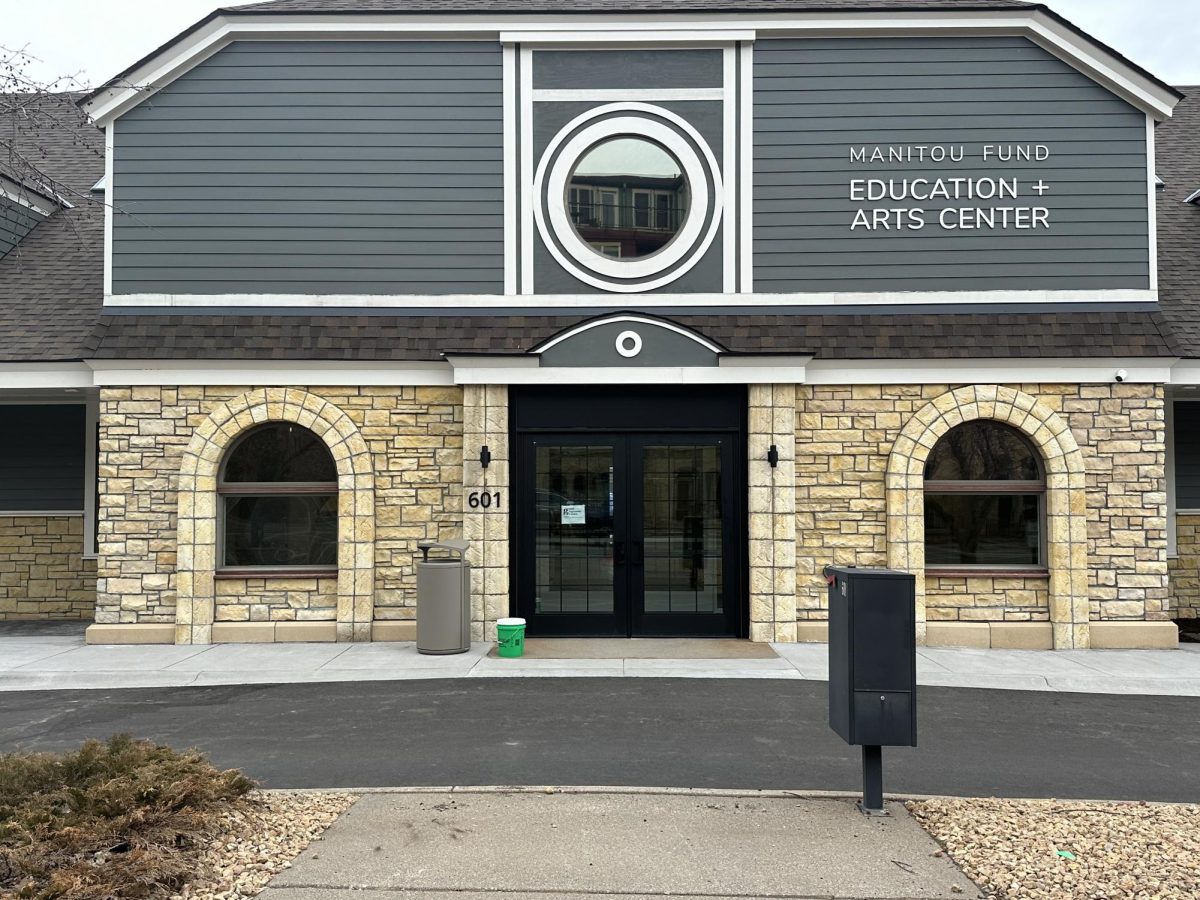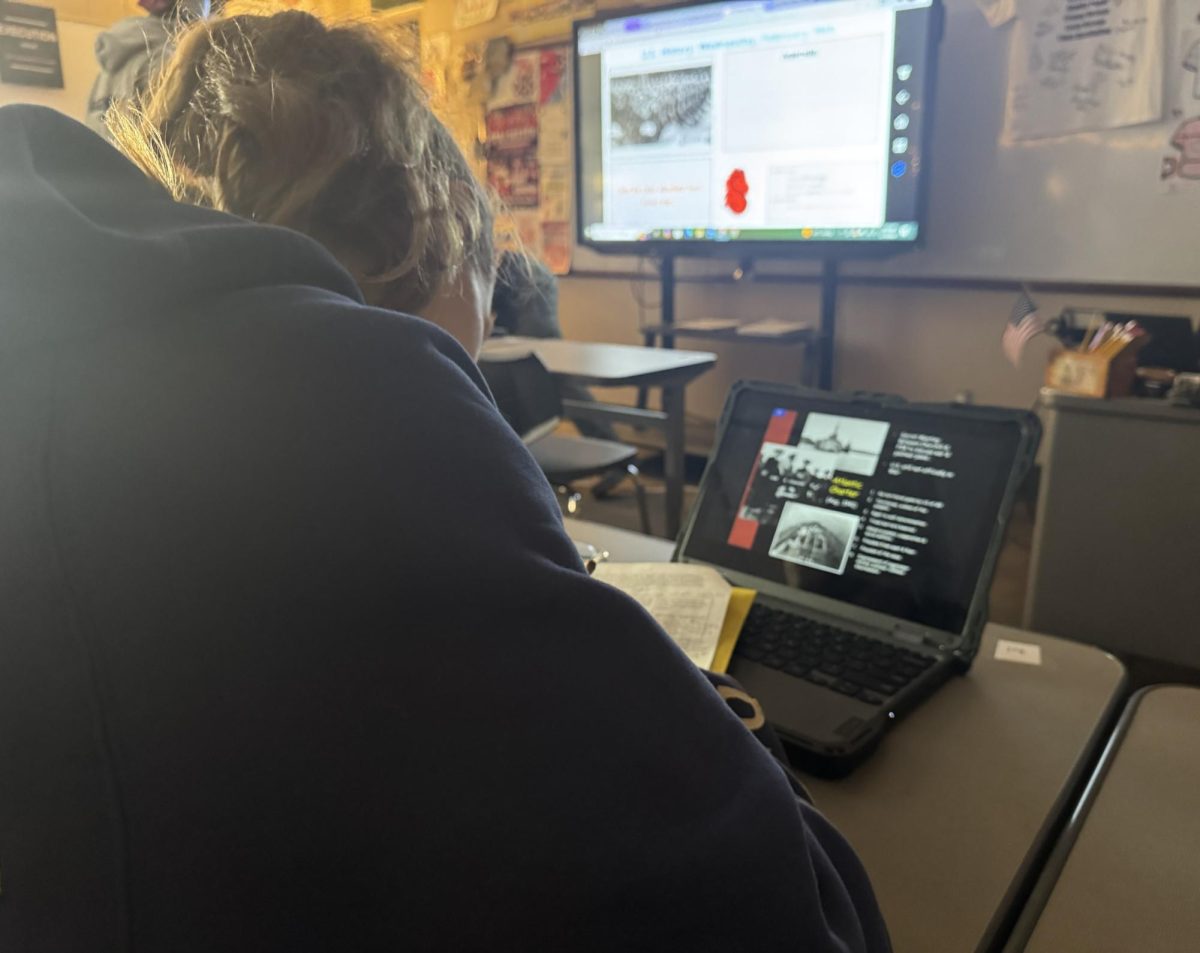The Zephyr restructured to focus on balancing theatre education, which has been a cornerstone throughout the theatre’s founding, and locally produced productions. The Zephyr opened in 2016 as an upcoming fully-fledged theater with the hopes of competing with the Phipps. Builders drafted and finalized plans in 2019 to break ground in 2020. The original plans included a bakery and multiple full-sized stages. However, until its closing, it remained unrenovated, with a small temporary stage set up for productions.
“I know it’s more positive there, there’s not much competition,” freshman and performer Malia Berg said.
Since the theatre’s creation, it has had no financial base. The theatre spent the most money on big productions and fundraisers instead of investing in financial planning and investing. Because there was no base, it made it almost inevitable for a collapse. During one of the last stable years within the old Zephyr board, signs and sketches of new building plans were posted in the depot lobby. These plans featured everything from multiple stages to a bakery. However, these plans were proven unattainable due to the small funding pool they had built at the time.
“The organization was spending more money than it was bringing in didn’t have the right processes and protocols in place to manage it and catch it in time,” Board member Nicki Bartelt said.
The Zephyr Theatre was previously located in the old Zephyr train depot. At the time of the building accusation, it had been deemed abandoned for over five years, so it needed a lot of work on cleaning and renovation. Even when the Zephyr started to have productions in the building, the old depot and restaurant seating remnants were still present.
“When your attention is split, you’re not quite able to give the full attention and care to one thing,” Education Director Reed Sigmund said.
The main issue that brought the financial problems to light was the failure to register as a nonprofit organization properly. From the initial investigation, unpaid fines and loans also needed to be paid off, leaving the theatre in a difficult position. At this point, board member and founder Calyssa Hall stepped down to focus on her other theatre journeys. At this point, the board was in a significant restructuring effort; new leadership was brought in and selected to rebuild the theatre on a solid financial base. Around this time, most programming got cut due to budget-related issues while the theatre searched for ways to come back to life.
“We’re looking on just establishing a really strong foundation and not throwing too big too quickly,” Sigmund explained.
The Manitou Fund, an organization tailored to helping struggling smaller organizations and nonprofits, had purchased the Zephyr depot building with plans to completely renovate it for River Grove Charter School, which needed a temporary spot to host classes for the 2024 school year. Based in White Bear Lake, the fund seeks out organizations, particularly those that deal with local art and the environment.
“We worked with them to eventually get purchase agreement where they would purchase the building and then allow us part of our purchase agreement that we’re allowed to have, at least or accessing the building,” Bartelt explained.
Zephyr has adapted its future growth plans to focus partly on theatre education and local performances. When Zephyr was under its old leadership, the primary focus was on production and experience, which can be pretty expensive and risky. In the past, however, theatre education classes have had significant success. Zephyr instructors go to schools around the St. Croix Valley and teach fundamental theatre skills to younger elementary and middle school kids. They also offer classes for homeschooled students who may not have had any theatre exposure.
“I want to ensure that arts education is accessible and affordable to all,” Sigmund said.
The newly renovated Zephyr depot building will soon turn back into a theatre space after the charter school is done using it. It is being described as a theatre education “hub”, as Reed explains. It will give homeschooled students a home for all their theatre classes and offer additional courses to other students. In addition to theatre, the Zephyr and Manitou Fund also plans to rent unused space to other local art sources.
“They wanted to do like the best as possible, so they ended up spending more money than they’re supposed to,” Berg explained.
While scaled back, Zephyr still produces shows for audiences. There are some theatres in the park experiences throughout the summer, typically occurring in the stage shell in Pioneer Park. Production of student shows is also slowly on the list of things to add back into the programming. These, however, will be more focused on learning techniques in theatre while putting on a show, unlike how traditional community theatre is focused. Stage space is rented from other local schools and venues for live performances instead of hosting them at the Zephyr depot.
“Our hope is to still I mean, in short, yes, we would still like to do productions, but we’re also open to doing them in other spaces,” Bartelt said.
Zephyr contracts other theatre companies around the area for a performance at a Zephyr-sponsored event to put on shows on behalf of the Zephyr. These shows have already been produced and performed previously. However, Zephyr contracts them to put on an organized performance in a local venue such as a park or outdoor space. In return, bringing in other theatre companies helps build funding and public awareness for the recently resurrected theatre. Looking at their future, they have some in-house productions down the pipeline for the next season, which currently need to be announced as they further assess what they will have the budget to produce.
“We’re planning productions for this summer and fall and Christmas week. So we didn’t take care of a week but we have a programming committee that’s working on it,” Bartelt explained.
The Zephyr is a building system and a financial base to ensure the events from the past year won’t occur again. Theatre education is a staple way for theatre companies to earn funding easily and spark students’ interest in theatre. The organization has been wearying about producing its productions as in-house productions are costly. As their financial base strengthens, they will offer more advanced classes and in-house productions to get more local artists and performers involved in the legacy of the theatre.










